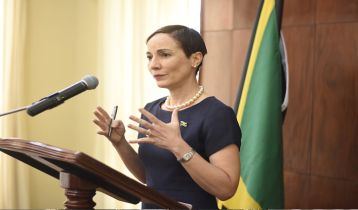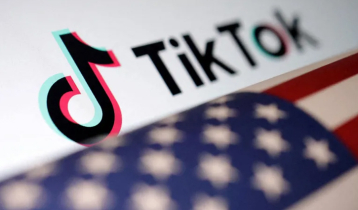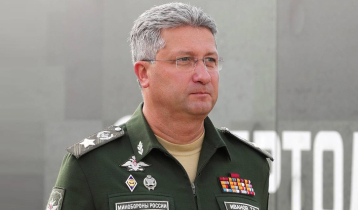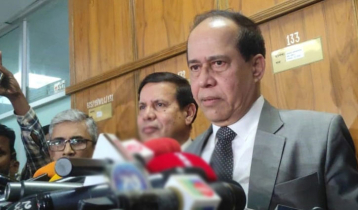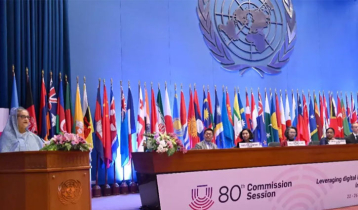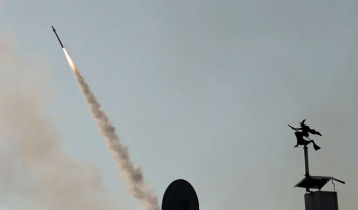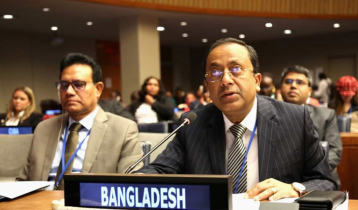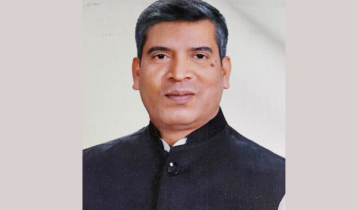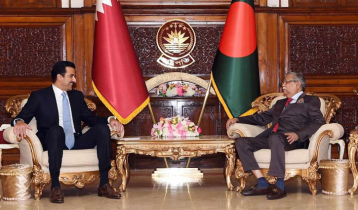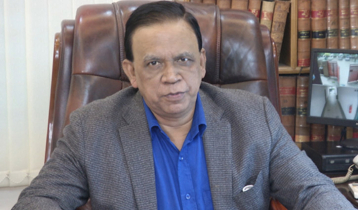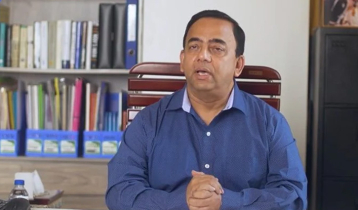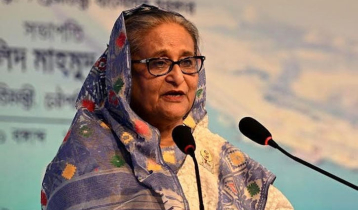US slaps new sanctions on Iran
5 || risingbd.com
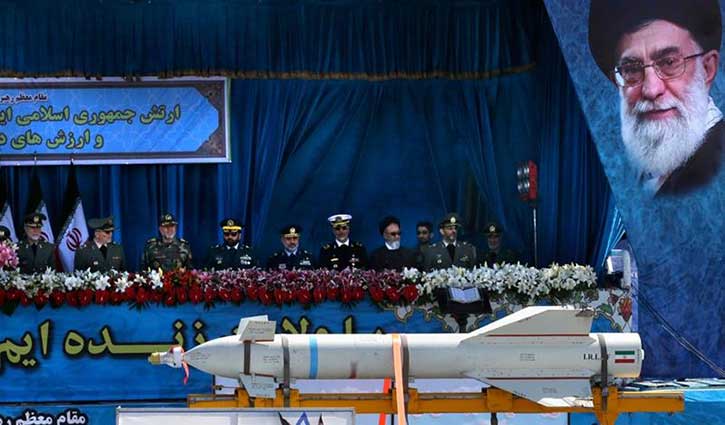
International Desk: The Trump administration announced on Tuesday new sanctions on 18 Iranian individuals, groups and networks over non-nuclear behavior, such as support for ballistic missiles development.
The move came a day after the administration certified to Congress that Iran is technically complying with the nuclear deal and can continue enjoying nuclear sanctions relief.
The treasury department is targeting seven groups and five people that aided Iran’s military or its elite Revolutionary Guard. The sanctions also target what the US says is a transnational criminal group based in Iran and three people associated with it, and the state department is also targeting two more groups associated with Iran’s ballistic missiles program.
The sanctions freeze any assets the targets may have in the US and prevent Americans from doing business with them.
Late on Monday, the administration insisted that Tehran would face consequences for breaching “the spirit” of the nuclear deal. Donald Trump, who lambasted the 2015 pact as a candidate, has given himself more time to decide whether to dismantle the deal or let it stand.
Officials said the US was working with allies to try to fix the deal’s flaws, including the expiration of some nuclear restrictions after a decade or more. The officials also signalled the new sanctions.
Trump, secretary of state Rex Tillerson and “the entire administration judge that Iran is unquestionably in default of the spirit” of the agreement, one official said. That assessment carries no legal force; Trump’s certification that Iran is technically complying clears the way for sanctions to remain lifted.
Monday’s late-night announcement capped a day of frenzied, last-minute decision-making by the president, exposing deep and lingering divisions within his administration about how to deal with a top national security issue.
National security advisers, including Tillerson and defense secretary James Mattis, recommended Trump preserve the deal for now in a meeting last Wednesday, according to the New York Times. An anonymous official told the Times that Trump spent 55 minutes of the meeting saying he did not want to certify Iran’s compliance. On Monday, a planned press briefing was cancelled at short notice as internal White House arguments continued.
Since early last week, Trump’s administration had been prepared to make the certification, a quarterly requirement. Trump first told Congress in April that Iran was indeed complying. With no final decision on his broader Iran policy, the White House had planned to let the status quo stand for another three months.
Iran will continue receiving the same sanctions relief that it did under former president Barack Obama.
In April, when Trump made his first certification, he paired it with new sanctions for non-nuclear behaviour to show there was no softening of his stance toward the Islamic Republic. Earlier on Monday, the White House had told outside experts it would repeat that playbook. The day came and went with no such announcement. Typically, the treasury department prefers to issue new sanctions during business hours.
“We receive contradictory signals,” Iranian foreign minister Mohammad Javad Zarif said Monday at the Council on Foreign Relations, before the decision was announced. “So we don’t know which one to interpret in what way.”
For Trump, the obligation to report to Congress on Iran’s conformity has created an unwelcome, tri-monthly headache. Trump must either vouch for Tehran’s compliance or try to claim Iran is breaching it – even though the International Atomic Energy Agency that monitors the deal says it is not.
In its condemnation of Iran, senior officials emphasised several longstanding US concerns about Iran’s ballistic missile programs, human rights abuses and support for terrorism in the region. They also criticised Iran for detaining US citizens and limiting freedom of navigation in the Persian Gulf.
Under the deal struck by Obama and other world leaders, Iran agreed to roll back its nuclear program – long suspected of being aimed at developing atomic weapons – in return for billions of dollars in sanctions relief. The deal does not address global concerns about Iran’s non-nuclear activities, but also doesn’t prevent the US and others from punishing Iran for those activities. Iran remains on the state department’s list of state sponsors of terrorism for its support of anti-Israel groups.
Scuttling the deal would put further distance between Trump and foreign leaders who are already upset over his move to withdraw from the Paris global climate change accord. Other powers that brokered the nuclear deal along with the US have said there’s no appetite for renegotiating it.
Source: The Guardian
risingbd/Dhaka/July 18, 2017/Amirul
risingbd.com



